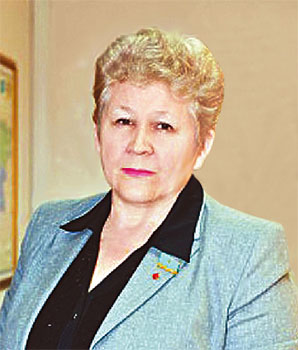The economic development of many nations has hinged on their geology. Mineral resources often determine the course of history and shape the political map of the world, and many hot spots are in areas of competition for energy reserves.
 However, ours is the information age, and the importance of intangible assets and processes has increased significantly. Today priorities have changed and knowledge, technology and technical expertise are in demand as much as natural resources. Strong, competitive states in the information age must have knowledge-intensive production accompanied by excellent management as a key component of their economies.
However, ours is the information age, and the importance of intangible assets and processes has increased significantly. Today priorities have changed and knowledge, technology and technical expertise are in demand as much as natural resources. Strong, competitive states in the information age must have knowledge-intensive production accompanied by excellent management as a key component of their economies.
Kazakhstan has an enviable resource base, but is also facing global environmental and economic challenges. Scientific knowledge and the predictions we can make allows us to be proactive in averting or preparing for catastrophes. The directions of our strategic research will determine Kazakhstan’s position in the modern world, and this process begins with convincing the state of its necessity.
Urbanisation; developing industrial zones and agricultural production; building engineering structures, water mains, oil and gas pipelines, roads, railways and mines; establishing landfills and industrial waste sites and determining the depths of mineral deposits: all of these require high-quality information, analysis and scientific advice on the regional development of the country. A thorough ecological-geological study combined with an expert economic assessment should become the basis for the assessment and zoning of the territory of Kazakhstan on resource, geodynamic, geochemical and geophysical factors.
The new environmental perspective demands the revaluation of our resource base in terms of the security and safe living conditions for individuals and the population as a whole. The conservation of nature and biodiversity is the main principle of this process.
Today, unfortunately, geology as a science is remembered only for its role in attracting foreign investors and its sometimes dramatic failures. This attitude will only lead to more failures. The concept the geology department adopted in 2012 will remain a concept as long as the geological committee remains a Cinderella within the Ministry of Industry and New Technologies, a stereotypical poor stepchild without rights or status but with many responsibilities that it is unable to perform. The transformation of the committee into an independent ministry with the corresponding authority would solve all the issues related to the study and monitoring of the state of mineral resources, exploration and prospects for expanding the mineral base of the country.
Problems in the industry, including a lack of professional staff and equipment for geological mapping, prospecting, and laboratory work as well as a learning gap when it comes to modern techniques and technologies, are growing like a snowball. Meanwhile, new approaches and initiatives in the field of geology, rational and comprehensive utilisation of mineral resources and the introduction of good practices of subsoil use are in great demand in the country. It seems that in the near future there will be no one to deal with these problems, since it takes 10 years at a minimum to prepare reasonably qualified professionals.
The resurgence of the study of geology, along with all other branches of knowledge and production related to the natural resource industry, will provide stability and help Kazakhstan tackle global and regional challenges and risks.
The author is the Deputy of the Mazhilis of Parliament of Kazakhstan.
